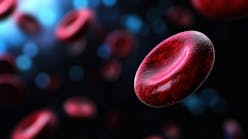Doctors who use health information technology are “slightly” more likely to get patient data
Physicians who use health information technology (HIT) systems are only slightly more likely to receive the patient information they need to provide coordinated care, reports a study in a recent issue of Medical Care. The researchers analyzed data from about 4,500 office-based physicians responding to a nationally representative survey on the use of EHR and electronic sharing of information. The doctors were also asked how regularly they received specific types of patient health data for effective coordination of care. The study focused on whether use of HIT was associated with a higher percentage of physicians receiving this essential information.
Regarding use of HIT, about 33 percent of physicians had an EHR system and shared patient health information electronically, while another 39 percent had an EHR system but did not share patient data electronically. About 25 percent met neither of these criteria. Asked about three specific types of information, 64 percent of physicians said they routinely received the results of patient visits with healthcare providers outside their practice, 46 percent received information on patients referred from other practices, and 54 percent received hospital discharge information.
Doctors using HIT were only slightly more likely to receive the necessary information than those who did not use HIT. For example, 48 percent of physicians who used HIT routinely received information on patients referred from other practices, compared to 40 percent of those who did not use HIT. Using HIT did not significantly affect receipt of hospital discharge information.
Even among physicians who routinely received the needed information, many were still getting it by fax or other non-electronic means. This was the case for three-fourths of doctors receiving information from other practices, and about half of those receiving hospital discharge information.
Read the study abstract on the Medical Care website





